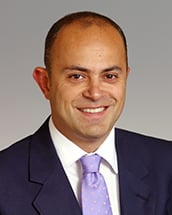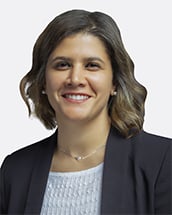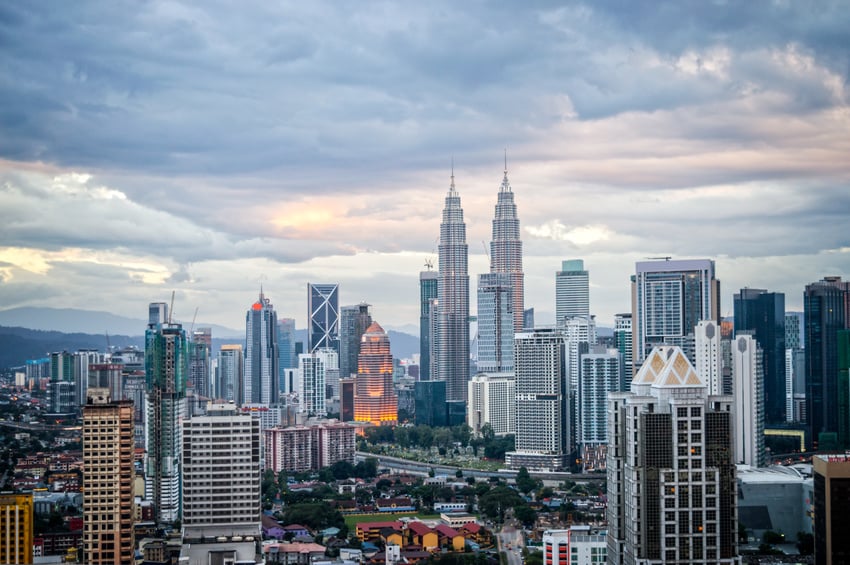In brief
Numerous initiatives aimed at building Africa’s climate resilience were announced at the 28th Conference of the Parties (COP 28) in Dubai in December 2023, including the establishment of green banks, greenhouse gas trading systems, public-private partnerships, transformative financing measures such as green bonds and sustainability-linked instruments, as well as a host of new funding pledges. Some of the key announcements impacting Africa are listed below.
In depth
Loss and damage
- Despite contributing less than five percent of global emissions, Africa faces disproportionate impacts from climate change. At COP 28, the African Group of Negotiators once again emphasised their continued commitment to energy transition, climate finance and the urgent need for funding for climate change adaptation. The Group noted that the continent needs between USD 200 and 400 billion a year by 2030 for loss and damage and USD 400 billion a year for adapting to climate change.
- At COP 28, some countries pledged contributions to the Loss and Damage Fund’s start-up phase. Countries pledging contributions include the European Union member states (USD 245 million), the United Kingdom (USD 50.5 million), the United States (USD 17.5 million) and Japan (USD 10 million).
- South African President Cyril Ramaphosa welcomed the setting up of the loss and damage fund but said that global banking reform and debt relief to enable funding for developing countries needed to be on a far larger scale.
Multilateral development banks
- Multilateral development banks (MDBs) and development finance institutions (DFIs) are increasingly anchoring climate funding in Africa because they can shoulder political risk, access government protections, enter markets that others cannot and are uniquely capable of facilitating innovative financing structures and long-term lending. However, the amount of capital needed to build climate resilience is significant and private equity, debt finance and specialist funds are entering the market. Multi-finance and blended solutions are growing in popularity as a means to de-risk deals and support a broader ecosystem of lenders and investors. To mobilise private sector finance, investor-friendly policies and incentives are needed to reduce barriers such as uncertain licensing processes, a lack of market liquidity and bankability.
- MDBs including the African Development Bank Group, European Investment Bank, Asian Development Bank, Asian Infrastructure Investment Bank, Council of Europe Development Bank, European Bank for Reconstruction and Development, Inter-American Development Bank Group, Islamic Development Bank, New Development Bank and the World Bank Group have been collaborating in support of African countries in their efforts to adapt to climate change and build resilient infrastructure and programmes to mitigate climate risks. The MDBs hope to attract private capital, expand the reporting of climate results and assist countries in identifying priorities and innovative opportunities related to sustainable investments. This group of MDBs recently welcomed the launch of the Early Warning for All initiative, which aims to promote accessible and inclusive early warning systems for all by 2027.
Public-private partnerships
- Africa and Middle Eastern leaders announced the launch of the USD 10 billion Global Green Growth Institute’s (GGGI) SAFE initiative at COP 28, a public-private partnership intended to transform food systems for millions facing food insecurity due to climate change.
- MDBs, including the African Development Bank (AfDB), Islamic Development Bank and the International Fund for Agricultural Development, announced a joint investment of USD 1.6 billion to assist in the development of Special Agro-Industrial Processing Zones (SAPZs) with a focus on climate-resilient food systems, as part of the SAFE initiative.
- The development of an electric corridor that will facilitate the transport of green electricity with a capacity of 3 GW from Egypt to Italy was announced at COP 28. The corridor will use a High-Voltage Direct Current cable to transport renewable energy from Egypt to Italy, creating a new energy hub bridging the EU, the Middle East and Africa.
- The Battery Energy Storage Systems (BESS) Consortium, which aims to develop advanced energy storage solutions for Africa’s renewable energy, supported by AfDB, the World Bank, the Asian Development Bank, the Inter-American Development Bank, the Agence française de Développement (AfD), Africa 50 and Masdar, was launched at COP 28. Burkina Faso, Egypt, Ghana, Kenya, Malawi, Mauritania, Mozambique, Nigeria and Togo have noted their interest in joining the programme.
- The Islamic Corporation for the Insurance of Investment and Export Credit (ICIEC) and the West African Development Bank (BOAD) signed a Memorandum of Understanding to lay the groundwork for implementing climate change adaptation and communications projects that will result in large-scale social and economic investments across the common member states of ICIEC and BOAD.
Several initiatives were announced by AfDB during COP 28, including:
- Discussions on the establishment of “green banks,” which could raise up to USD 1.5 billion in climate financing by 2030. This will initially involve the implementation of green investment facilities in financial institutions in Benin, Côte d’Ivoire, Morocco and Egypt, with the aim of enhancing the technical capacity of local banks to mitigate risks and attract finance from investors.
- The launch of its Climate Action Window, which aims to mobilise USD 4 billion for climate adaptation in 37 low-income countries across the continent by 2025.
- Presentation of a planned Africa Climate Risk Insurance Facility for Adaptation (ACRIFA), which aims to mobilise USD 1 billion of concessionary financing, high-risk capital, and grants in support of the insurance industry in Africa. The facility will offer climate impact insurance to millions of farmers across the continent.
- A collaboration between the AfDB and the African Finance Corporation will result in a USD 350 million long-term line of credit to finance sustainable infrastructure projects in Africa. The partnership will help reduce Africa’s infrastructure gap, focusing on sectors such as power, transportation, telecommunications and natural resources.
- AfDB, Arab Bank for Development in Africa, Germany, France and Japan have pledged around USD 175 million to the Alliance for Green Infrastructure in Africa, which intends to attract private capital worth USD 10 billion for green infrastructure.
- AfDB’s Director for Energy, Financial Solutions, Policy and Regulation, Wale Shonibare, also proposed the establishment of a Bank of African Settlements and a new currency backed by commodity reserves as an innovative way to leverage Africa’s commodity wealth to create a new financial architecture.
Country announcements
- The US, alongside the European Union, the UK, France and Germany also announced that the Just Energy Transition Partnership, of which South Africa is a member, will now mobilise investment and announce policy implementation plans to accelerate the JET-IP. These countries promised a USD 8.5 billion financing package to South Africa at COP 27.
- South Africa presented its finalised Just Energy Transition Investment Plan (JET-IP) at COP 28. The JET IP is aligned with the Cabinet-approved National Just Transition Framework and outlines the investments required to achieve the country’s decarbonisation commitments while promoting sustainable development and ensuring a just transition for affected workers and communities. The JET IP covers electricity, new energy vehicles and green hydrogen and identifies USD 98 billion in financial requirements over the next five years, to come from both the public and private sectors.
- At COP 28, the US Agency for International Development (USAID) and the National Oceanic and Atmospheric Association (NOAA) announced they were working with the World Meteorological Organization, the UN Office for Disaster Risk Reduction and the National Meteorological and Hydrological Services to establish advanced early warning systems for floods, droughts, cyclones and harvests in 20 African states, as well as small island developing states (SIDS) and least developed countries (LDCs).
- The US also made a USD 3 billion pledge to the Second Replenishment of the Green Climate Fund (GCF), subject to fund availability, and said the country would champion an ambitious GCF evolution agenda that included improved access to climate finance for SIDS, LDCs, and African states.
- Also announced was support for the Green Guarantee Company (GGC), the first privately run guarantee company devoted to green bonds and loans in developing countries, focusing on Africa, Asia, and Latin America.
- The US, through USAID, the State Department and Prosper Africa, and alongside the UK Foreign Commonwealth and Development Office, the GCF and the Nigerian Sovereign Investment Authority, announced contributions to GGC’s initial balance sheet of USD 100 million.
- The US also announced USD 1.4 billion in investments through the Women in the Sustainable Economy (WISE) Initiative, of which Africa is a beneficiary. The full White House briefing is available here.
- The UK announced GBP 44 million in new investments by British International Investment to support clean energy transition and build climate resilience in Africa, with projects underway in Sierra Leone and Kenya. The UK has also pledged a GBP 32 million investment in the GGC.
- The UK is also adding Climate Resilient Debt Clauses (CRDCs) to its new and existing loan agreements with Senegal and Guyana. A large majority of the countries attending the summit joined a call for all creditors to offer CRDCs by 2025, which will allow affected countries to temporarily pause debt repayments if they were to experience the impact of a climate disaster.
- UK Export Finance (UKEF) announced more than GBP 600 million in transactions supporting climate adaptation and sustainability across Africa and the Middle East.
- The European Investment Bank (EIB) and Allianz Global Investors (AllianzGI) used the COP 28 platform to announce new commitments to the Emerging Market Climate Action Fund (EMCAF), an innovative blended finance fund that provides early-stage financing to climate mitigation and adaptation projects as well as green companies in emerging and developing markets. The UK has pledged to commit GBP 9 million and Germany will commit an additional EUR 33 million.
- The European Commission hosted nine energy-focused events at COP 28, covering ways to accelerate the clean energy transition, which included participation by the African Union. The discussions centred on geopolitical challenges, realities in the energy market, energy efficiency, the role of cities, clean tech finance and a just transition.
- Ethiopia announced a USD 600 million wind farm initiative with a developer from the UAE.
- Nigeria announced it would roll out a fleet of 100 electric buses.
- Sierra Leone announced that its first wind farm would be backed by a renewable energy group from the UK.
- Angola announced a solar plant would be developed to provide 90,000 homes with electricity, with backing from a renewable energy company in the UAE.
- Tunisian delegates announced a goal to reduce greenhouse gas emissions in the country by 45% by 2030, as well as being one of the first countries to announce its intention to be carbon neutral by 2050.
- Uganda announced it will receive USD 19 million from the Emerging Africa Infrastructure Fund for a 20 Megawatt solar PV project.
- Zambia’s Copperbelt Energy Corporation (CEC) announced it would issue Zambia’s first green bond by the end of 2023, with the proceeds used to fund solar power generation.
Conclusion
With financing pledged from the world’s major players, numerous climate adaptation initiatives announced, the participation of MDBs and DFIs to facilitate and innovate the financing process and the increasing mobilisation of the private sector in climate resilience projects, African countries are slowing gaining access to the vast funding needed to fortify the continent against the impact of climate change. While much more still needs to be done, these collaborative initiatives mark progress towards a more climate-resilient and sustainable future for the African continent.





